Alligators have been the world’s oldest living reptiles for more than 65 million years.
They may grow up to 11 feet long with a 20-foot tail and have withstood earthquakes and droughts.
They have armored skin that helps protect them from predators and harsh weather conditions.
But how thick is this armor? Can a bullet penetrate it? Are alligators bulletproof?
Contrary to popular belief, alligators are not bulletproof. Even though an alligator’s skin is quite thick, it cannot protect against bullets. High-caliber bullets would pierce right through it instead of deflecting off its back.
Read on to discover how thick an alligator’s skin is and whether or not it is bulletproof to an extent.
How Thick is Alligator Skin?
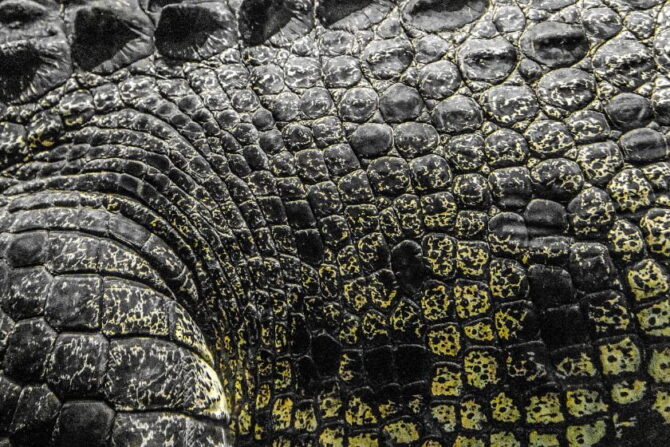
An alligator’s skin is prized for its incredible quality and texture. Although technically not bulletproof, a gator’s thick skin can shield it from some wounds.
The thickness of an alligator is quite variable—it depends on the size and species of the alligator as well as the region it is found in.
The adult alligator’s skin thickness ranges from 0.2 to 0.8 inches, much thicker than a human’s skin.
It is also very elastic, meaning it can stretch to accommodate changes in size or shape.
Are Alligators Bulletproof?
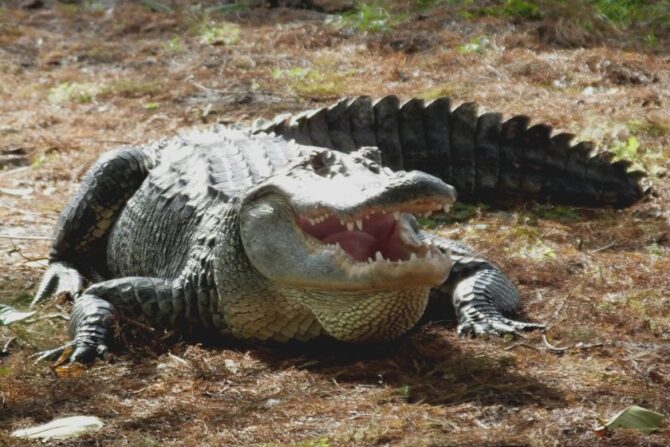
Alligator skin is not bulletproof but is tough enough to stop a 9mm bullet, as well as a .45 caliber and even higher caliber bullets.
Alligators are not bulletproof, despite what you may have heard. This presumption is borne from alligators having hard and distinctive skin.
Both waterproof and bulletproof qualities are absent from the alligator skin.
However, while the alligator’s skin is not bulletproof, a 9mm, .45, and even greater caliber bullet can be stopped by it if the shot is not well placed.
Also See: Are Crocodiles Bulletproof? How Thick Is Crocodile Skin?
What is Alligator Skin Made of?
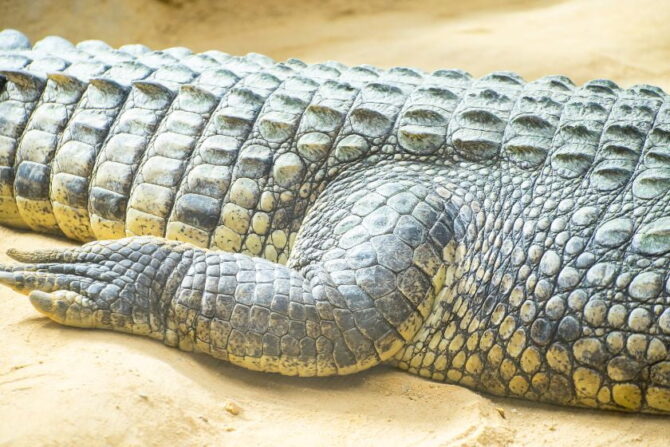
An alligator’s skin is thick and durable and is known as one of the finest leathers in the fashion industry.
It’s astonishing that crocodiles actually have touch receptors all over their skin, considering that they are such strong predators with “heavily armored skin.”[1]
These sensors are more sensitive to pressure and vibration than human fingertips.
The scales that make up an alligator’s skin are overlapping and covered in an animal protein called keratin. This makes it hard and long-lasting but not impervious to bullets. Scutes are the name for these bony scales seen on alligators.[2][3]
This large reptile’s scales shield it from the sun, and predators (who can sense movement via the sensitivity of their scutes), let it thrive in arid environments by reducing water loss and helping to regulate its body temperature.[4]
Can a Single Shot Kill an Alligator?
You can kill an alligator with a single shot if you aim well and use the correct caliber weapon (like a little 9mm pistol).
The spinal cord can be injured behind the thick skull at the back of an alligator’s head, making that area particularly vulnerable to gunshots.
They have a kill spot the size of a quarter on the top and back of their heads; if targeted, this location or spot will ensure a speedy death.
The snout and eyes of an alligator are two highly sensitive areas to target also.
However, it is crucial to remember that a full-size alligator will typically require a hard shot, possibly even several bullets, to bring it down.
Can You Kill an Alligator with Just a Knife?
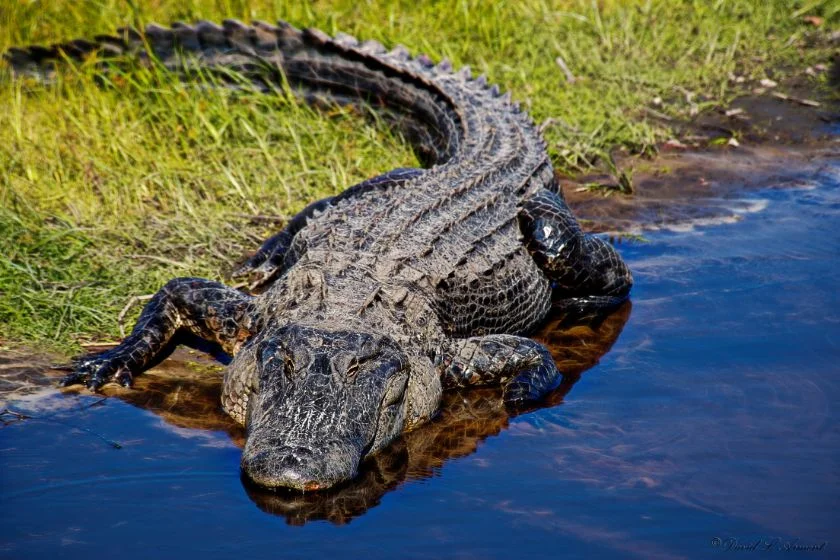
An alligator can be killed with a knife if you are a really skillful individual.
By sneaking behind the gator, bearing down on its midsection, clamping its jaw shut, and with a swift and repeated thrust, you could kill this large reptile with a knife.
Local alligator hunters also use knives while hunting gators if they’re intended for human consumption because using guns to kill them can harm the meats and skins, which lowers their market value.
How are Alligators Hunted?
Alligator hunters may use hook and line, bow and arrow, and firearms (except shotguns) to harvest alligators. Possessing and using a shotgun is not permitted while hunting wild alligators.[5]
The only technique permitted in public spaces is fishing (with a hook and line). In Florida, wild alligators are hunted only at night with harpoons, crossbows, spear guns, and fishing poles.[6]
There are several lawful methods for hunting alligators which includes:[7]
- Fishing rods using a fixed treble hook
- Fishing rods using artificial lures
- Baited wooded pegs (must be no longer than 2 inches) using a fishing rod or hand-held line
- Hand-line snatch hooks
- Hand-held catch poles or similar tools
- Bang sticks (the only firearm you’re permitted to use for alligator hunting)
Frequently Asked Questions
What is an alligator’s skin used for?
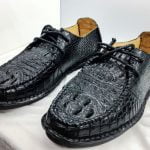
Alligator skin is processed into classic leather by chemically treating it in a process called tanning, a chemical technique used to turn alligator skin into traditional leather.
This leather is used to make tools, furniture, sporting goods, purses, wristwatches, clothes, shoes, etc.
Is an Alligator’s skin expensive?
Crocodiles and, in particular, alligators are two of the most popular and well-known exotic leathers, but they are also two of the most expensive options.
There are several reasons why alligator and crocodile leather products are far more expensive than, say, calf or bullhide leather products, despite what may initially seem ludicrous.
Which animal is bulletproof?
Although no animal is truly bulletproof, many different species have hard, inflexible shells that cover some or all of their body to provide defense against unforeseen attacks.
There are a number of animals with armor that can deflect shotgun pellets as well as shots from pistols or rifle caliber rounds.
They consist of: armadillo, abalone, pangolin, ironclad beetle, crocodile, elephant, whale, rhinoceros, hippopotamus, polar bear, moose, gorilla, etc.
Do alligators shed their skin?
The answer is yes. Just like other reptiles, alligators shed their skin regularly as they age. However, their molting process is different compared to other reptiles. They shed their scales one at a time.
Conclusion
The skin of an alligator is thick and durable because it has evolved over millions of years to protect itself from predators and harsh climates.
However, this does not make them bulletproof.
Alligators might resist low-caliber bullets, but a powerful gun in the hands of a skillful hunter will surely kill them.
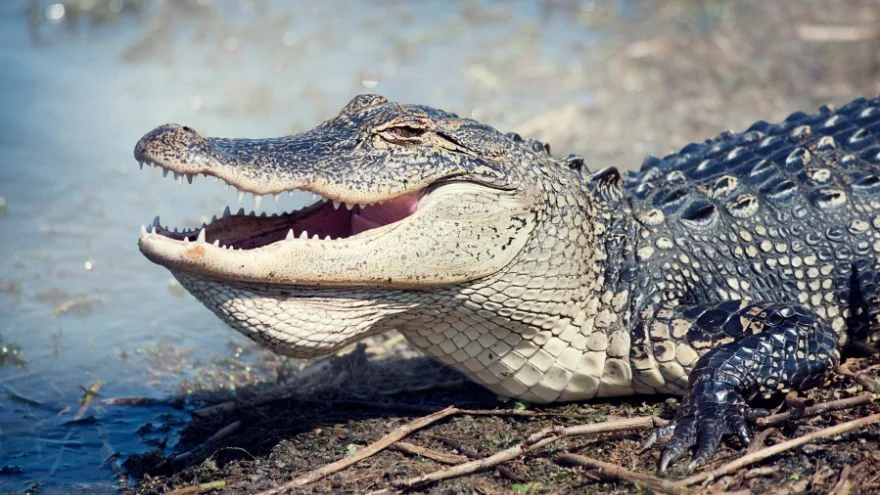

![Do Alligators Have Tongues & Taste Buds [Answered] (1)](https://animalvivid.com/wp-content/uploads/2022/09/Do-Alligators-Have-Tongues-Taste-Buds-Answered-1.jpg.webp)
![Do Alligators Shed Their Skin [Answered]](https://animalvivid.com/wp-content/uploads/2022/09/Do-Alligators-Shed-Their-Skin-Answered.jpg)